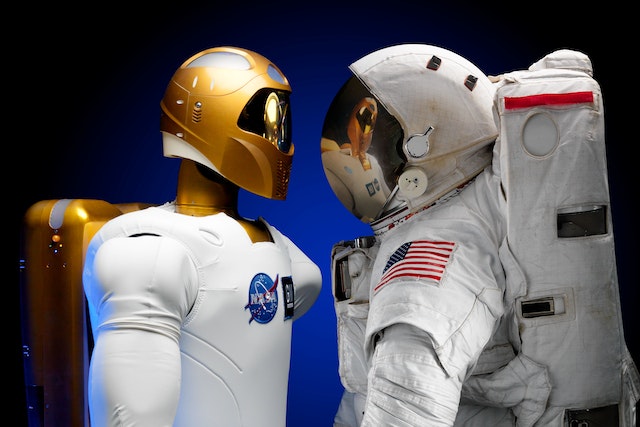Contents
- 1 1. Driving Innovation and Advancements
- 2 2. Enhancing Efficiency and Productivity
- 3 3. Personalization and Customer Experience
- 4 4. Fostering Smarter Decision-Making
- 5 5. Driving the Future of Autonomous Systems
- 6 6. Addressing Global Challenges
- 7 7. Ethical Considerations and Responsible AI
- 8 Conclusion
1. Driving Innovation and Advancements
Artificial Intelligence serves as a catalyst for innovation and technological advancements. Its ability to process vast amounts of data and extract valuable insights has led to groundbreaking discoveries and developments. From medicine to space exploration, AI’s impact is felt across diverse domains.
AI-driven research in healthcare has led to early disease detection, personalized treatment plans, and drug discovery, saving countless lives. In space exploration, AI algorithms analyze astronomical data, enabling us to unravel the mysteries of the universe and expand our knowledge of celestial bodies.

Why is Artificial Intelligence Important: Unlocking the Power of AI
2. Enhancing Efficiency and Productivity
AI is at the forefront of increasing efficiency and productivity across industries. Automation, powered by AI, streamlines repetitive tasks, freeing up human resources for more strategic endeavors. This not only reduces operational costs but also leads to faster turnaround times and improved customer experiences.
In manufacturing, AI-driven robotics optimize production processes, ensuring precision and minimizing errors. In the financial sector, AI algorithms analyze market trends and risk patterns, enabling informed investment decisions. Overall, AI’s efficiency-enhancing capabilities boost overall productivity and competitiveness.
3. Personalization and Customer Experience
One of AI’s most significant contributions lies in its capacity for personalization. AI-powered recommendation systems tailor content, products, and services to individual preferences, making the customer experience more engaging and satisfying.
E-commerce platforms utilize AI to offer personalized product recommendations based on past behavior, leading to higher conversion rates. Streaming services use AI algorithms to curate personalized content playlists, ensuring users are presented with content that aligns with their interests.
4. Fostering Smarter Decision-Making
AI’s data analysis and predictive capabilities empower decision-makers with valuable insights for strategic planning. By analyzing complex data sets, AI systems identify patterns and trends that inform better decisions across various sectors.
In marketing, AI-driven analytics help identify target audiences, optimize ad campaigns, and measure performance metrics. In agriculture, AI-powered sensors gather real-time data on crop health, enabling precision farming practices and maximizing yields.
5. Driving the Future of Autonomous Systems
AI is a driving force behind the development of autonomous systems, reshaping transportation and logistics. Self-driving cars, powered by AI algorithms, are poised to revolutionize the automotive industry, making roads safer and reducing traffic congestion.
Autonomous drones equipped with AI technology hold promise for delivering goods to remote areas and providing aid during emergencies. AI-driven logistics systems optimize supply chain management, ensuring seamless operations and cost-efficiency.
6. Addressing Global Challenges
AI plays a vital role in addressing some of the most pressing global challenges, such as climate change and sustainability. AI-powered climate models help scientists understand climate patterns and predict extreme weather events, aiding in climate change mitigation.
Additionally, AI supports environmental monitoring efforts, such as tracking deforestation and wildlife conservation. Its potential in optimizing energy consumption and resource allocation contributes to building a sustainable future.
7. Ethical Considerations and Responsible AI
As AI’s impact grows, ethical considerations become increasingly important. Ensuring AI is developed and utilized responsibly is paramount to prevent biases, discrimination, and misuse of AI technologies.
Promoting transparency, accountability, and inclusivity in AI development is crucial to safeguarding the interests of all stakeholders. Ethical AI frameworks are essential for establishing guidelines that balance innovation with societal well-being.
Conclusion
In conclusion, the importance of Artificial Intelligence cannot be overstated. Its transformative capabilities are evident across industries, driving innovation, and enhancing everyday life. From fostering smarter decision-making to addressing global challenges, AI is a powerful tool that empowers humanity to reach new heights.
Embracing AI responsibly, with a focus on ethical considerations, will pave the way for a future where AI augments human potential and leads to a more sustainable and equitable world.
